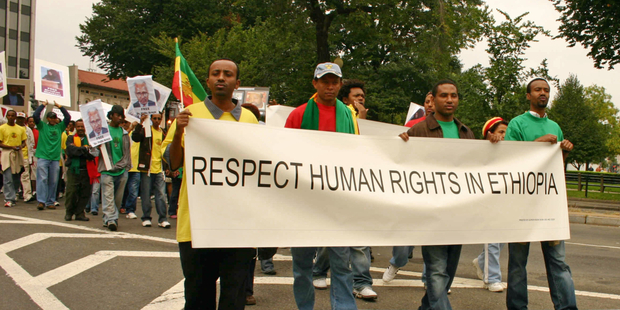
Yemen's Arab Spring activist Tawakkul Karman, Liberian President Ellen Johnson Sirleaf and Liberian 'peace warrior' Leymah Gbowee, winners of the 2011 Nobel Peace Prize. MANDEL NGAN/AFP/Getty Images
Today the Nobel Committee announced that it is awarding its Peace Prize to three women: Leymah Gbowee, Tawakkul Karman, and Ellen Johnson-Sirleaf.
While the fact that the prize is being awarded to three women is important, it is not the most important symbol of what today’s announcement represents. Sure, the number of women who have been honored in the prize’s history (twelve until today) pales in comparison to the number of men (eighty-five), and that disparity should be addressed.
But focusing exclusively on the numbers game as we congratulate Gbowee, Karman and Sirleaf misses the point entirely: these women are not honored today because they are women. They are honored for what their work represents in promoting a more peaceful, just world. Doing so as women, they are both at unique risk and offer unique solutions—but their work makes the world a better place for all.
SEE THE REST OF THIS POST

